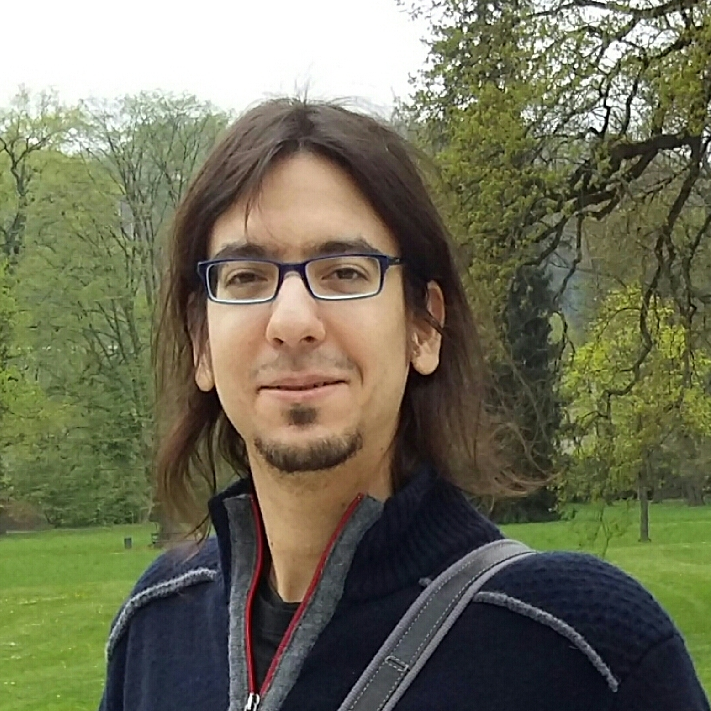Organisation
Program Chairs
 Marinos Kintis
Marinos Kintis
University of Luxembourg
 Nan Li
Nan Li
Medidata Solutions
 José Miguel Rojas
José Miguel Rojas
University of Leicester
Mutation is widely acknowledged as one of the most important techniques to assess the quality of tests. In recent years, mutation has gained popularity both in academia and research, with several companies and research projects attempting to incorporate mutation to the development life cycle. Mutation analysis has traditionally targeted the source code but has also been successfully applied to various artefacts at different levels of abstraction. Examples of such artefacts include: database schemas, finite state machines, various model notations, security policies, software product lines, etc. Mutation has also been employed to solve various research problems including the Test Oracle Problem, Fault Localisation and Debugging, Defect Prediction, etc. To this day, the mutation field continues to expand with an increasing trend of high quality publications.
Mutation 2018 is the 13th in the series of international workshops focusing on mutation analysis. The workshop will be held in conjunction with the 11th International Conference on Software Testing, Verification, and Validation (ICST 2018). Accepted papers will be published as part of the ICST proceedings.
The Mutation workshop aims to be the premier forum for practitioners and researchers to discuss recent advances in the area and propose new research directions. We invite submissions of both full-length and short-length research papers and especially encourage the submission of industry practice papers.
Mutation is widely acknowledged as one of the most important techniques to assess the quality of tests. In recent years, mutation has gained popularity both in academia and research, with several companies and research projects attempting to incorporate mutation to the development life cycle. Mutation analysis has traditionally targeted the source code but has also been successfully applied to various artefacts at different levels of abstraction. Examples of such artefacts include: database schemas, finite state machines, various model notations, security policies, software product lines, etc. Mutation has also been employed to solve various research problems including the Test Oracle Problem, Fault Localisation and Debugging, Defect Prediction, etc. To this day, the mutation field continues to expand with an increasing trend of high quality publications. The Mutation workshop aims to be the premier forum for practitioners and researchers to discuss recent advances in the area and propose new research directions. We invite submissions of both full-length and short-length research papers and especially encourage the submission of industry practice papers.
Topics include, but are not limited to:
Three types of papers can be submitted to the workshop:
Each paper must conform to the two columns IEEE conference publication format and must be submitted in PDF format via EasyChair. Submissions will be evaluated according to the relevance and originality of the work and to their ability to generate discussions between the participants of the workshop. Three reviewers will review each paper and all the accepted papers will be published as part of the ICST proceedings.
Following the workshop, authors of selected papers will be invited to submit extended versions of their papers to a Special Issue on mutation testing (Pending approval by Journal editors).
 Marinos Kintis
Marinos Kintis
 Nan Li
Nan Li
 José Miguel Rojas
José Miguel Rojas
| 08:00. |
Registration. |
| 09:00. |
Opening. |
| 09:15. |
Keynote 1: MUTATION: What Have We Done and What Can We Do Next?. |
| 10:30. |
Fika. |
| 11:00. |
Session 1. |
| 11:00. |
A Systematic Review of Cost Reduction Techniques for Mutation Testing: Preliminary Results. |
| 11:30. |
To Detect Abnormal Program Behaviours via Mutation Deduction. |
| 11:50. |
If You Can't Kill a Supermutant, You Have a Problem. |
| 12:10. |
Mull it over: mutation testing based on LLVM. |
| 12:30. |
Lunch. |
| 14:00. |
Keynote 2: Mutation Testing: Evaluating Millions of Mutants in 8 Programming Languages. |
| 15:30. |
Fika. |
| 16:00. |
Session 2. |
| 16:00. |
Mutant Quality Indicators. |
| 16:20. |
MUSIC: MUtation analySIs tool with High Configurability and Extensibility. |
| 16:40. |
An Industrial Application of Mutation Testing: Lessons, Challenges, and Research Directions. |
| 17:00. |
Closing. |
Please use the general ICST'18 registration site. Early bird registration available until March 9th, 2018.